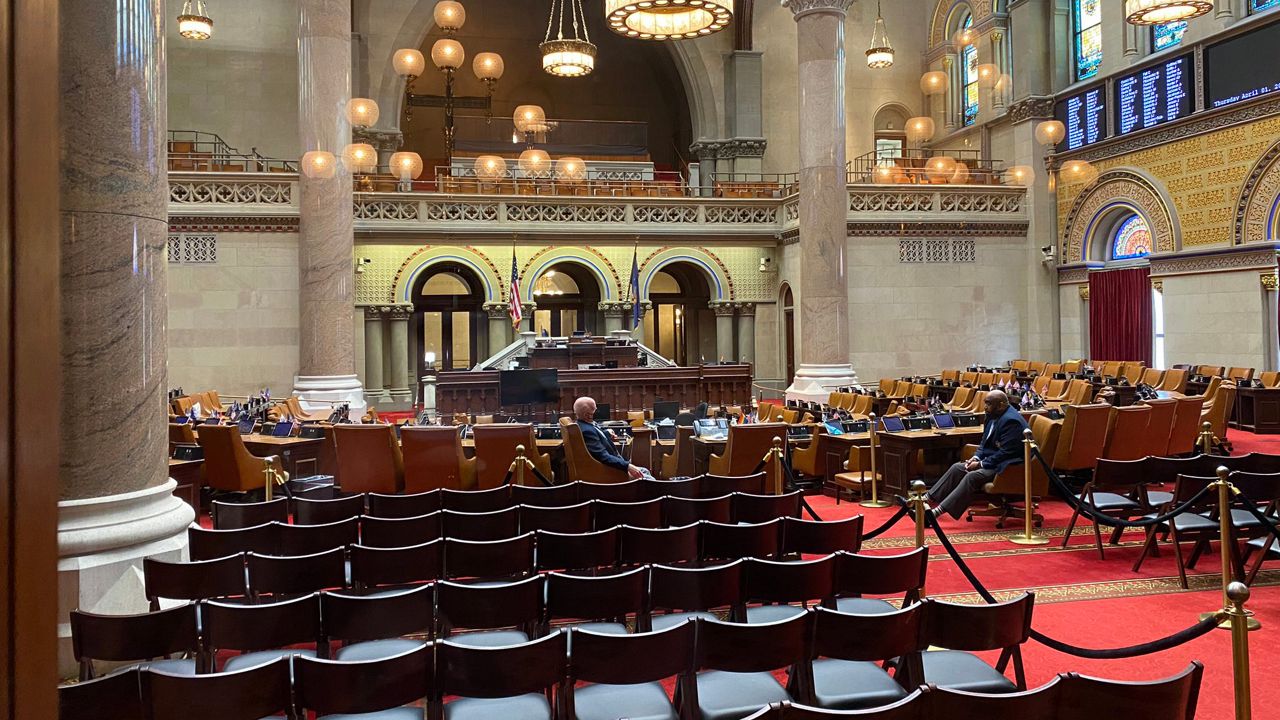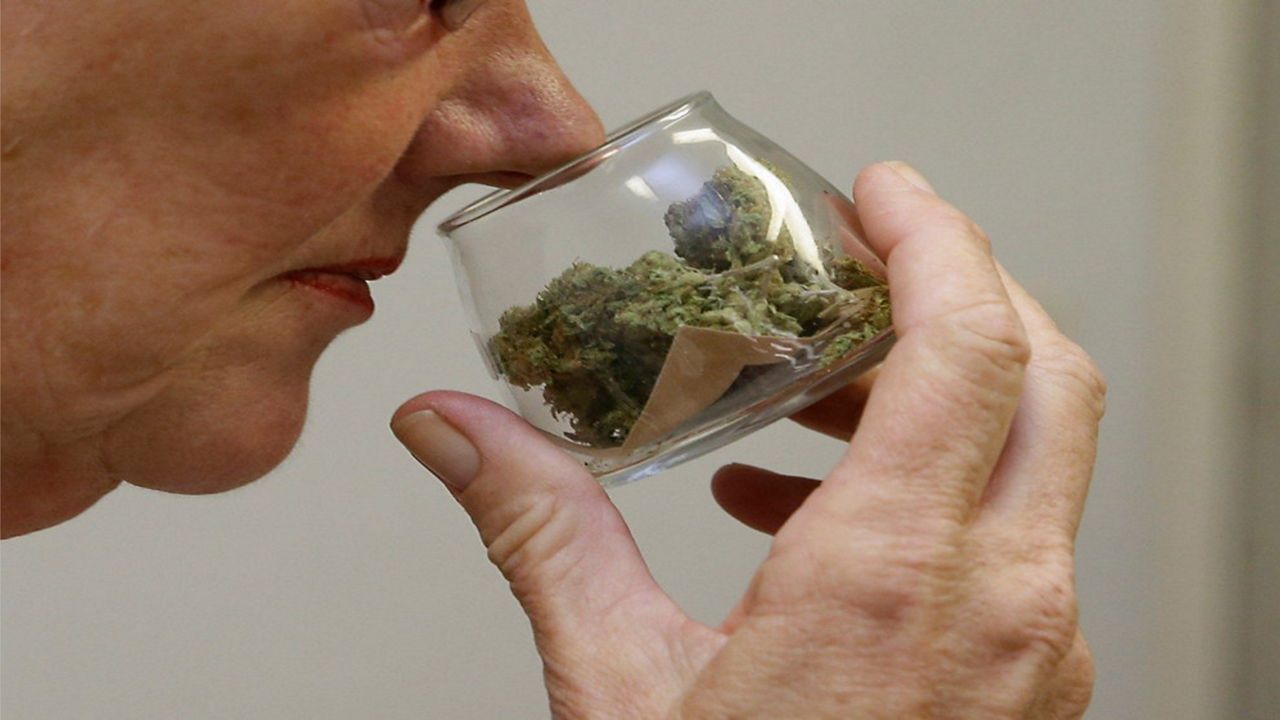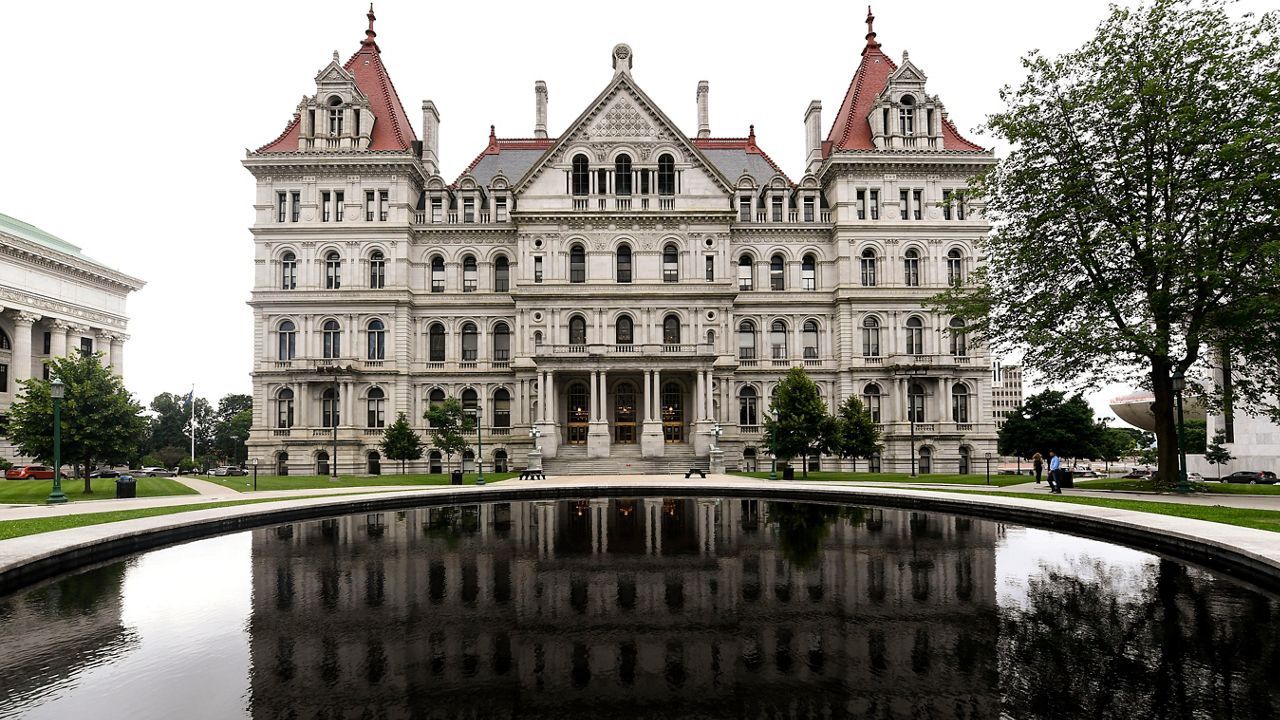State lawmakers late Wednesday evening put the final touches on a $212 billion spending plan that will be New York's primary operating document for the next year.
The budget sharply increases spending, directing much of the new money to schools, health care, renters and small landlords, as well as to undocumented immigrant workers affected by the pandemic. It raises taxes on millionaires to help pay for the new spending this year and in the next several years.
Democratic lawmakers said the budget is meant to help boost the state's nascent recovery and aid those who were severely impacted by the crisis. Republicans blasted the plan for its tax increases, and argued it should have done more to aid small businesses and veterans.
The budget was completed more than a week late, with half of the Legislature appearing via video conference, and the Assembly speaker, Carl Heastie, in quarantine after a positive coronavirus diagnosis.
“The COVID-19 pandemic has impacted every aspect of our lives – and has put incredible strain on many New Yorkers who were already struggling,” Heastie said. “The Assembly Majority is committed to putting families first, and this budget will do that by investing in the programs that will help them when they are most vulnerable.”
His Republican counterpart, Assembly Minority Leader Will Barclay, was less sanguine, taking issue with the tax increases and the excluded workers fund. But he also found some items to praise.
"With a budget of this size, there are obviously positive outcomes," Barclay said. "I’m pleased that the final agreement includes funding increases for upstate roads and bridges, provides robust education resources as students and teachers continue to navigate through pandemic protocols, continues tax cuts for middle-class families and offers direct financial assistance through grants for small businesses. However, the positive aspects of the spending plan are few and far between."
The spending plan also tore open fissures between Democrats in New York. The party has supermajorities in both the state Senate and Assembly, a big tent that includes democratic socialists and upstate and suburban moderates.
The state Democratic committee chairman Jay Jacobs rebuke the progressives who chastised their more moderate colleagues who raised objections to the $2 billion fund aiding undocumented workers. Jacobs, in part, said white lawmakers shouldn't be accused of racism for opposing the provision.
On Wednesday night, that led to a rebuke in turn from one of the lawmakers, Sen. Jabari Brisport.
"So I would love to see a day where a person in a position of power, a Democrat, a white Democrat says something like this and we are all shocked. But today I'm not shocked," Brisport said. "I’m disappointed, but I hope we can all work to get to a future where the Democratic Party is actually an anti-racist party and every legislator agrees we will not work with legislators who enable racists."
The budget is Gov. Andrew Cuomo's 11th since he took office a decade ago, and comes as he and his administration face multiple controversies ranging from allegations of sexual harassment, to under reporting deaths in nursing homes and having taxpayer-funded aides help him write a book reportedly worth $4 billion. Cuomo has denied any wrongdoing.
Cuomo still faces calls for his resignation from his fellow Democrats and an impeachment investigation in the state Assembly.
On Wednesday, Cuomo in an hour-long opening to his news conference leaned heavily on a theme of overcoming adversity.
"We are people who get up off the mat," he said. "We are born for people who get up off the mat. We're born from people who left countries where they had no opportunity, where they had no growth, and they took a tremendous risk coming to this place. Some by their own will, some in chains, but that is who we are. We are survivors, we are entrepreneurs, and we will get up and we will re-envision, reimagine and rebuild, and this action plan invests in us to do just that."
The budget itself may ultimately outlive of the controversies and noise of the moment. It's a consequential and far-reaching document that comes as the state and the rest of the country is emerging from the pandemic.
“While much of the new resources may be temporary and necessary to meet current needs, it is important that spending not grow to unsustainable levels," Comptroller Tom DiNapoli said. "The state must plan for the end of emergency federal aid and use new tax resources to fund essential services, to once again begin contributing to rainy day funds and to reduce projected out-year gaps. Long-term alignment of recurring revenues with recurring spending is essential to putting New York’s fiscal house in order."






)

